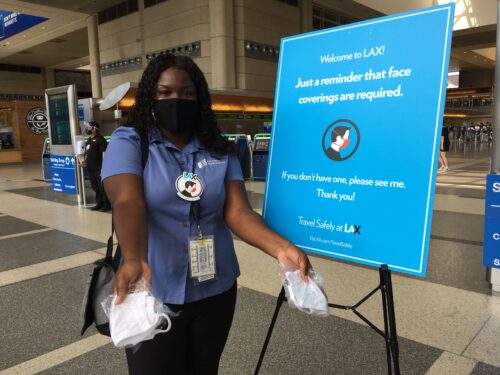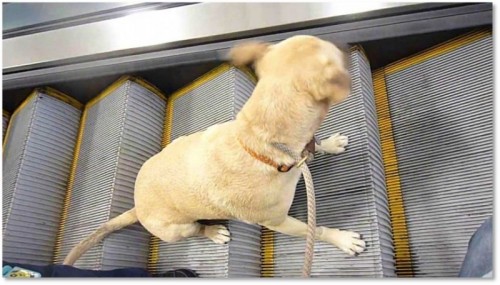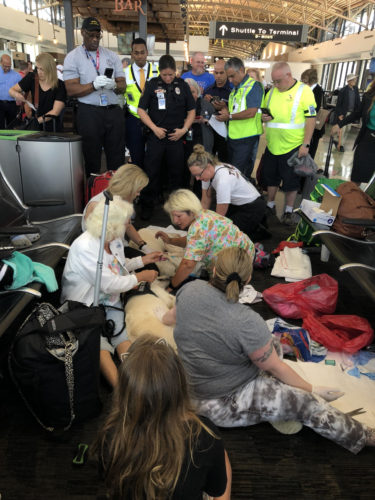
(A slightly different version of our story on airport masks policies first appeared on USA TODAY)
Although COVID-19 cases are surging, holiday flight bookings are up.
The uptick in travel is tied to pent-up demand for travel. And to recent studies that say air travel is as safe or safer than many other routine activities on the ground.
Most every airline now requires passengers to wear face coverings and passengers who refuse to comply may find themselves on a carrier’s no-fly list.
But what about airports?
Many groups have been urging the current administration to issue a mask requirement for all commercial travel. But no federal law currently requires passengers to wear face coverings in airports.
Airports in locations that have state or local mask requirements do have the authority to cite, ticket, or, in some cases, eject travelers that fail to comply.
But in most cases, airports report they are instead relying on audio and visual messaging, personal reminders and the airline policies.
Airports around the country are also handing out the more than 86 million face masks delivered over the summer to airports by the U.S Department of Transportation (DOT), the Federal Emergency Management Agency (FEMA), and other agencies.
At Charlotte Douglas International Airport (CLT) messaging on the public address system reminds passengers that face coverings are required by the governor’s mandate. Reminders of the face-covering requirement also appear on shuttle buses, entrance doors, and throughout the terminal.
In addition to signage about wearing masks, at Denver International Airport (DEN) all employees are encouraged to politely remind a passenger to wear their mask if it is not on or not on properly.
“We may offer a person a complimentary mask to encourage compliance,” says airport spokesperson Alex Renteria, “If a person acts aggressively, law enforcement may be called. But we have not had an instance where a traveler refused to wear a mask.”
At Los Angeles International Airport, Travel Safety Ambassadors patrol some terminals to remind guests about the airport’s mask policy and hand out free face coverings if needed.
“We do our best to remind people from the moment they step into the building,” said airport spokesman Heath Montgomery, “But the airlines are the ones with the authority to decline service to those who refuse to comply with face-covering policies.”
Other efforts
Phase 2 of the Harvard T.H. Chan School of Public Health’s study on the risks of flying during the COVID-19 pandemic will focus on the curb-to-curb airport journey.
But there is no firm timetable for the release of that phase of the report.
In the meantime, in addition to encouraging passengers to mask up, airports continue to reassure travelers with assertive terminal-wide cleaning procedures, COVID-19 testing services, and other health and safety regimes.

